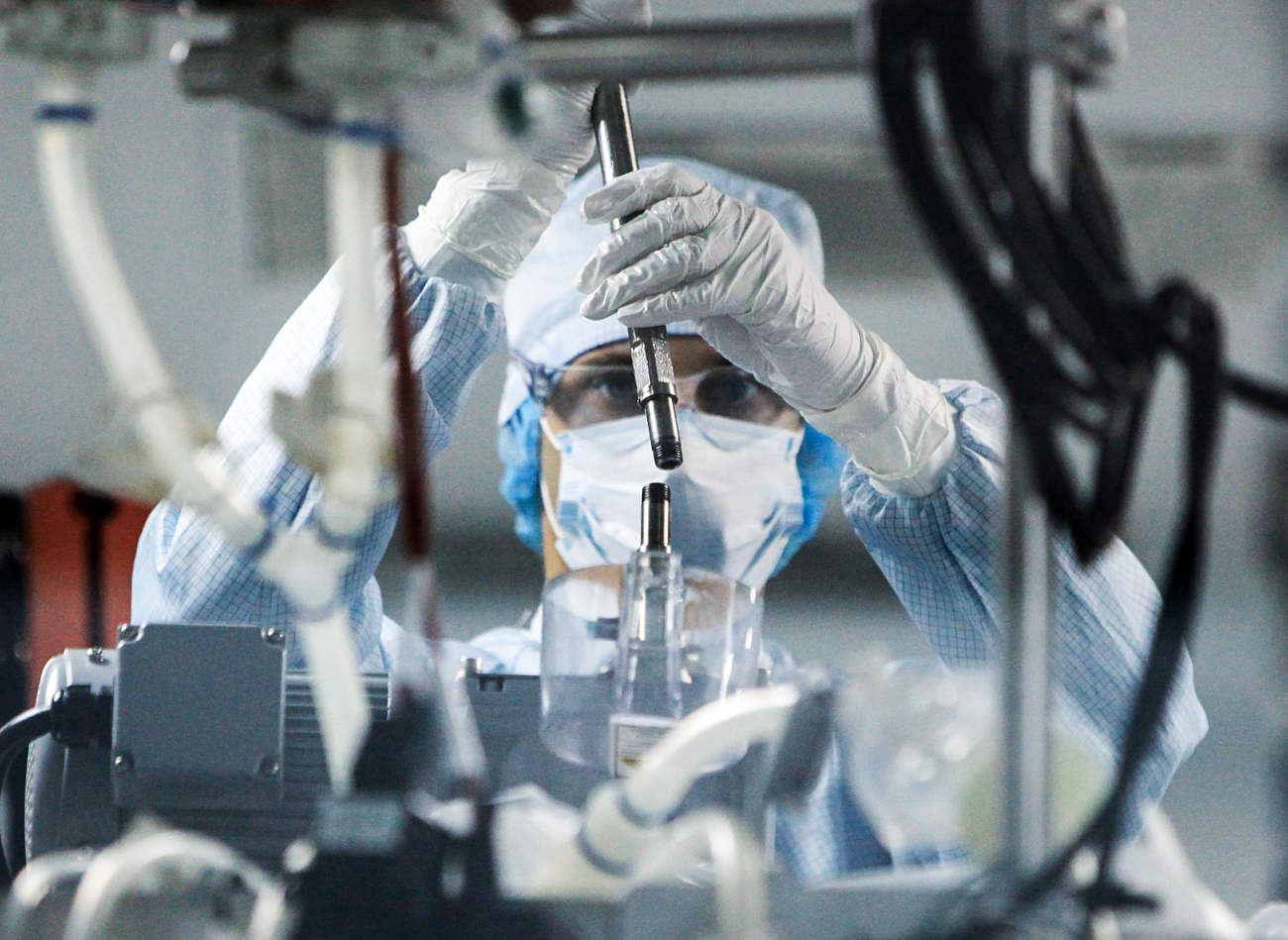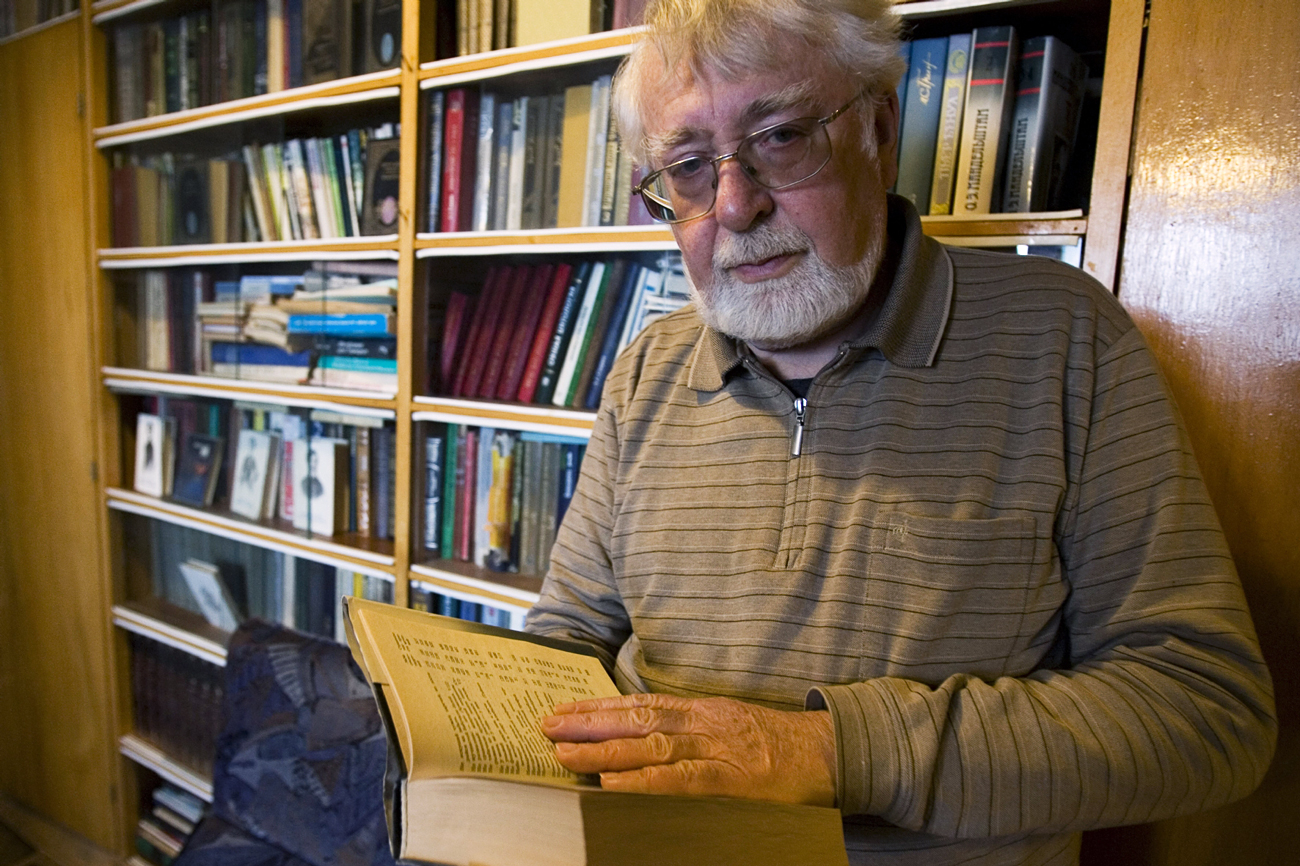
Russian scientists have previously tested their pioneering procedures on themselves.
Sergei Konkov/TASSWhen Russian biophysicist Alexey Karnaukhov had his bone marrow transplanted into his body last October in hopes that he could live to 150 years old, his experiment did not make headlines. Russian scientists have previously tested their pioneering procedures on themselves. For instance, cryologist Anatoly Brushkov injected himself with a compound containing a sample of an ancient strain of bacteria that survived in permafrost for millions of years, and Vladimir Skulachev of the Russian Academy of Sciences took some eye drops with an anti-aging agent developed by his lab.
Skulachev said the experimental drug cured his cataracts. "I was almost blind, so I decided to volunteer as a test subject. By that time, we had already successfully treated cataracts in 500 elderly rats,'' he said.
Ophthalmologists were fascinated with the results of this experiment. Skulachev’s laboratory is currently working on an affordable drug that can cure most ailments associated with aging.
Skulachev is studying mitochondria, cellular sub-units in human cells. According to his theory, as mitochondria wear out due to oxidation they eventually prevent the body's cells from staying healthy.
"If we unlock the mechanism of this process, people will be able to stay healthy well into old age," said Skulachev. "But this isn’t immortality. Instead, the idea is to rid humanity of the humiliating state of senility at the end of life. There are examples of this in nature; for example, many species of crocodiles, certain turtles and the bowhead whale do not age."
 Vladimir Skulachev of the Russian Academy of Sciences. / Source: PhotoXPress
Vladimir Skulachev of the Russian Academy of Sciences. / Source: PhotoXPress
Together with his sons – Maksim, a biologist, and Innokenty, a mathematician – Skulachev developed a new chemical that can slow down aging. The chemical, dubbed SkQ, delivers natural antioxidants into human tissues. It has been tested on animals.
Maksim Skulachev, the researcher’s elder son, founded Mitotech, a lab that is working on an SkQ-based medicine suitable for humans. The project has earned the attention of Russian billionaires. In 2005, Oleg Deripaska invested $15 million, but funding was cut after the financial crisis hit in 2008. Later, Mitotech secured support from the government-owned nanotechnology company, Rosnano, and several private investors.
In its quest to develop an ‘immortality pill’, the lab produced a rejuvenating serum sold under the brand name Mitovan, as well as Visomitin, drops used to treat dry eye syndrome. The drops have been available in Russia for some time, and are currently undergoing clinical trials in the U.S.
To complete the trials, Mitotech requires an investment of $15 million, and is currently searching for a backer in the United States, preferably an American pharmaceutical company that could ensure the drug gets access to the market.
"If all goes well, Visomitin will be available in the U.S. in 2018 or 2019," Maksim Skulachev told RBTH.
Milotech is also preparing the release of Visotimin Forte, a new eye medication.
"We’ve increased the dosage tenfold to increase the drug’s efficiency," said Skulachev. "Thus, we will be able to preserve a person’s eyesight until well into old age."
This year, the lab came closer to launching the long-awaited elixir of youth that it has been working on for almost 11 years. Clinical tria
The Russian government is also interested in anti-aging technologies. In early 2015, the Moscow Institute of Physics and Technology (MIPT) established the Center for Research on Molecular Aging Mechanisms.
Professor Valentin Gordely, a famous Russian biophysicist who previously worked at the Institute of Structural Biology in Grenoble, France, took charge of the new center. And director of the Bridge Institute at the University of Southern California, Raymond C. Stevens, a man famous for commercializing scientific discoveries and bringing new drugs to the market, became the chairman of the Center’s supervisory committee. The Center has six labs and has received about $10 million in state funding since 2009.
"One of our goals is defining the structure of proteins responsible for aging," said Vladimir Chupin, head of the biophysics department at MIPT. "Our research will allow us to create drugs through computer-aided engineering, as well as methods of chemistry and biology."
The Center focuses on researching membrane proteins related to the processes behind aging-related diseases, and it plans to open a research lab to study Alzheimer’s.
Biophysicist Alexey Karnaukhov’s ambition is to live to 150. He thinks that extending a person’s lifespan is possible by transplanting their own cells that have been stored separately and have not been damaged by external factors.
"In our experiments the average lifespan of mice improved by 34 percent," Karnaukhov told RBTH. "Their fertile period has also been extended; in human years, the females gave birth as late as the age of 60. The mice were also much more active and looked younger in general – their fur became more shiny and fluffy."
Nevertheless, each rejuvenation method has downsides. Karnaukhov said a patient can only receive cells that are his own, and that cells cannot be rejuvenated artificially since they can potentially succumb to various genetic defects in the process.
"Our own cells can find their place in our body on their own, and can be used to restore an elderly person’s health,'' Karnaukhov said.
All rights reserved by Rossiyskaya Gazeta.
Subscribe
to our newsletter!
Get the week's best stories straight to your inbox